The Well-Tempered Ear
Classical music: In two FREE concerts on Sunday afternoon and evening, the UW Wind Ensemble celebrates Black History Month and the guest duo Bridge of Song celebrates Nordic song
1 Comment
PLEASE HELP THE EAR. IF YOU LIKE A CERTAIN BLOG POST, SPREAD THE WORD. FORWARD A LINK TO IT OR, SHARE IT or TAG IT (not just “Like” it) ON FACEBOOK. Performers can use the extra exposure to draw potential audience members to an event. And you might even attract new readers and subscribers to the blog.
By Jacob Stockinger
On a weekend with a lot of live music, two FREE concerts also take place at the University of Wisconsin-Madison’s new Hamel Music Center, 740 University Ave., on Sunday afternoon and early Sunday evening. Details are below:
BLACK HISTORY MONTH
At 2 p.m. in the Mead Witter Foundation Concert Hall, the UW Wind Ensemble (below) will celebrate Black History Month with a FREE concert.
The conductor is director Scott Teeple (below).
Also participating is the Madison-based Mt. Zion Baptist Church Gospel Choir (below), with director Leotha Stanley.
The program is:
Adolphus Hailstork (below): “American Guernica” (heard in the YouTube video at the bottom)
Armando Borolo: “Last Breaths”
DaSean Stokes, soloist
Aaron Copland: “A Lincoln Portrait”
Traditional/arr. Reynolds: “He’s Got the Whole World in His Hands”
Stephen Newby: “When I See His Glorious Face/Can’t Nobody Do Me Like Jesus”
Omar Thomas: “Of Our New Day Begun”
For more information, go to: https://www.music.wisc.edu/event/uw-wind-ensemble-7/
NORDIC SONG
Then at 6:30p.m. in the Collins Recital Hall, there is a FREE concert to promote Nordic song by Bridge of Song.
Bridge of Song is a voice and piano duo. It features soprano Kathleen Roland-Silverstein (below top) and pianist Collin Hansen (below bottom).
Songs will be performed in three languages — Swedish, Finnish and English. For a complete program of composers and works – unfortunately, with no translations of the foreign-language titles – as well as extended biographies of the performers, go to: https://www.music.wisc.edu/event/bridge-of-song/
Tags: #AaronCopland, #AbrahamLincoln, #AdolphusHailstork, #ALincolnPortrait, #ArmandoBarolo, #BaptistReligion, #BlackComposer, #BlackHistoryMonth, #BlogPost, #BlogPosting, #BridgeofSong, #ChoralMusic, #ChristianReligion, #CollaborativePianist, #CollinHansen, #CollinsRecitalHall, #DaSeanStokes, #EnglishLanguage, #FacebookPost, #FacebookPosting, #FinnishComposer, #FinnishLanguage, #ForeignLanguage, #GospelChoir, #GospelMusic, #HamelMusicCenter, #HesGottheWholeWorldinHisHands, #JacobStockinger, #JesusChrist, #KathleenRoland-Silverstein, #LeothaStanley, #LiveMusic, #MeadWitterFoundationConcertHall, #MeadWitterSchoolofMusic, #Mt.ZionBaptistChurchGospelChoir, #Mt.ZionGospelChoir, #NegroSpiritual, #NordicMusic, #NordicSong, #OmarThomas, #PianoAccompaniment, #PianoAccompanist, #ScottTeeple, #SopranoSinger, #SpiritualMusic, #StephenNewby, #Sundayafternoon, #SwedishLanguage, #TraditionalMusic, #UniversityofWisconsin-Madison, #UWWindEnsemble, #VocalMusic, #WindMusic, #YouTubevideo, A Lincoln Portrait, Aaron Copland, Abraham Lincoln, Adolphus Hailstork, afternoon, America, American, Armando Barolo, arrangement, Arts, audience, Baptist, biography, black, Black History Month, blog, breath, bridge, Bridge of Song, celebrate, choral music, Christian, Classical music, Collin Hansen, Collins Recital Hall, complete, composer, Concert, conductor, Copland, DaSean Stokes, day, director, duo, English, evening, face, Facebook, Finland, Finnish, foreign, forward, free, glorious, God, gospel, gospel choir, Guernica, Hamel Music Center, hands, He's Got the Whole World in His Hands, Jacob Stockinger, Jesus, Kathleen Roland-Silverstein, language, last, Leotha Stanley, like, Lincoln, link, live music, Madison, Mead Witter Foundation Concert Hall, Mead Witter School of Music, Mt. Zion, Mt. Zion Baptist Church Gospel Choir, Mt. Zion Gospel Choir, Music, Negro spiritual, Negro spirituals, new, Nordic, Nordic music, Nordic song, Omar Thomas, participant, perform, performer, Pianist, Piano, post, posting, program, promote, Religion, Scott Teeple, share, Singing, solo, soloist, song, soprano, spiritual, Stephen Newby, Sunday, Swedish, tag, traditional, translation, United States, University of Wisconsin-Madison School of Music, University of Wisconsin–Madison, UW, UW Wind Ensemble, UW-Madison, vocal music, weekend, whole, wind music, winds, Wisconsin, woodwinds, works, world, YouTube, Zion
Classical music: Rediscovering the music of composer Florence Price is a great way to start the celebration of Black History Month
3 Comments
IF YOU LIKE A CERTAIN BLOG POST, PLEASE SPREAD THE WORD. FORWARD A LINK TO IT OR, SHARE or TAG IT (not just “Like” it) ON FACEBOOK. Performers can use the extra exposure to draw potential audience members to an event.
By Jacob Stockinger
February is Black History Month.
There are a lot of African-American performers and composers to emphasize during the month. Check out this exhaustive listing – conveniently organized into categories such as composers, conductors and pianists — in Wikipedia:
https://en.wikipedia.org/wiki/Category:African-American_classical_musicians
But this year one of the best ways to mark the event is to rediscover the composer Florence Price (below, in photos from the University of Arkansas Libraries).
Much of her work was until recently hidden in 30 boxes in her abandoned and dilapidated summer home located 70 miles south of Chicago.
A good introduction to Price (1887-1953) – who was famous in her day and was the first African-American woman composer to be performed by the Chicago Symphony Orchestra — can be found in the Deceptive Cadence blog of National Public Radio (NPR).
https://www.npr.org/2019/01/21/686622572/revisiting-the-pioneering-composer-florence-price
Here is a link to an excerpt from a new Albany recording of her two violin concertos:
And if you want to hear more of what her music sounds like check out the YouTube video at the bottom that has excerpts from the new Naxos recording, in the American Classics line, with her Symphonies Nos. 1 and 4.
You can also find quite a bit more of Price’s music, including a piano concerto, a piano sonata and orchestral suites, on YouTube.
Tags: #African-AmericanMusic, #AfricanAmerican, #AlbanyRecords, #AmericanClassics, #BlackComposer, #BlackHistoryMonth, #BlogPost, #BlogPosting, #ChicagoIllinois, #ChicagoSymphonyOrchestra, #DeceptiveCadence, #FemaleComposer, #FlorencePrice, #NationalPublicRadio, #NaxosRecords, #OrchestralMusic, #OrchestralSuite, #PianoConcerto, #PianoSonata, #UniversityofArkansas, #ViolinConcerto, #Wikipediaentry, #WomanComposer, #YouTubevideo, abandoned, African American, African-American music, Albany Records, American, American Classics, Arts, audience, black, black composer, Black History Month, blog, celebrate, Chamber music, Chicago, Chicago Symphony Orchestra, classic, Classical music, composer, concerto, conductor, Deceptive Cadence, event, exhaustive, famous, female, female composer, feminism, Florence Price, House, Jacob Stockinger, libraries, library, like, link, listing, Madison, mark, month, Music, National Public Radio, Naxos Records, NPR, Orchestra, orchestral, Orchestral Suite, performer, Pianist, Piano, Piano concerto, Piano sonata, Prejudice, racism, rediscover, Sexism, share, Sonata, summer home, symphony, tag, United States, Violin, Violin concerto, vocal music, Wikipedia, Wisconsin, women, work, YouTube
Classical music: Madison Opera will present the Midwest premiere of ‘Charlie Parker’s Yardbird.’ Here are the many impressive preparatory events for the public that start this Friday
2 Comments
By Jacob Stockinger
The Ear has received the following information to post about a local opera production that is both exciting and an inspired choice to mark February as Black History Month:
Madison Opera will present the Midwest premiere of “Charlie Parker’s Yardbird” on 8 p.m. on Friday, Feb. 10, and 2:30 p.m. on Sunday, Feb. 12, in the Capitol Theater at Overture Center for the Arts.
For more information about the cast and the production as well as about purchasing tickets ($25-$114), go to:
http://www.madisonopera.org/performances-2016-2017/charlie-parkers-yardbird/
With music by Swiss composer Daniel Schnyder (below top) and a libretto by writer and poet Bridgette A. Wimberly (below bottom), the acclaimed opera “Charlie Parker’s Yardbird” tells of the legendary jazz musician and the people closest to him.
The opera, which melds jazz and opera, is set on the day that saxophone great Charlie Parker died in 1955. As his body lies unclaimed in a New York City morgue, Parker returns in spirit to the jazz club Birdland, determined to compose a final masterpiece. Family and friends blend in and out of his memories, including his three wives, his mother, his friend Dizzy Gillespie and even his drug dealer.
Charlie Parker’s Yardbird premiered in June 2015 at Opera Philadelphia (below is tenor Lawrence Brownlee, in a photo by Dominic Mercier, in the title role of Charlie Parker in the Philadelphia production) and was subsequently presented by the company at the Apollo Theater in New York City in April 2016. (You can hear an excerpt in the YouTube video at the bottom.)
The New York Times praised it for its “pulsing, jazz-infused score,” while the Wall Street Journal said, “its rhythms snap and swing, its melodies – including real arias – seize the ear, its ensembles crackle with energy.”
Madison Opera will be only the second company to present this work, which is sung in English with projected text and runs 90 minutes without an intermission.
“I saw Charlie Parker’s Yardbird when it premiered in Philadelphia and instantly knew it would be a perfect opera for Madison,” says Kathryn Smith (below, in a photo by James Gill), Madison Opera’s general director. “The very American story and the exciting jazz-inflected music fit perfectly into our ever-expanding range of repertoire.”
She adds, “It’s not a straightforward narrative of Parker’s life, but rather elements of his life as refracted through his memories and imagination, and particularly his relationships with the women in his life.”
Madison Opera’s cast includes both debuts and returning favorites, as well as a number of singers who created their roles in the world premiere.
Joshua Stewart (below), a young American tenor who has sung at La Scala, Bayerische Staatsoper, and Opera de Lausanne, debuts in the tour de force role of Charlie Parker.
Angela Brown (below) returns following her performance at Opera in the Park 2016 as Addie Parker, Charlie’s mother, a role she created in Philadelphia.
Will Liverman, who sang Figaro in Rossini’s The Barber of Seville here in 2015, sings jazz legend Dizzy Gillespie, a role he created in Philadelphia.
Krysty Swann debuts as Rebecca Parker, Charlie’s first wife. Angela Mortellaro, who sang Galatea in Handel’s Acis and Galatea in 2013, returns as Doris Parker, Charlie’s third wife, a role she created in Philadelphia.
Rachel Sterrenberg debuts as Chan Parker, his final wife, a role she created in Philadelphia. Baroness Pannonica de Koenigswarter, in whose hotel suite Parker died, is sung by Julie Miller in her Madison Opera debut.
Directing this production is Ron Daniels (below), who staged the world premiere and was the opera’s dramaturge, involved in the creation and workshop process.
John DeMain (below, in a photo by Prasad) conducts, with members of the Madison Symphony Orchestra in the pit.
DeMain says: “I am so happy to be a part of Madison Opera’s Midwest premiere of Charlie Parker’s Yardbird. Parker was consumed with music, breathing it day and night. All of us who are passionate about performing and listening to music can identify with this phenomenal musician and will not want to miss this jazz-infused opera, the perfect expression of Parker’s range and depth as a musician.”
Composer Daniel Schnyder will attend the opening night performance and join Smith for the Pre-Opera Talk that evening at 7 p.m. in the Wisconsin Studio.
In addition to the performances, Madison Opera and its community partners are hosting a series of related events, collectively known as “Extending the Stage,” which culminate in a concert of Charlie Parker’s music with composer Daniel Schnyder and the UW-Madison’s Blue Note Ensemble.
These events include Opera Novice; community previews; Opera Up Close; discussions of the life and music of Charlie Parker (below); and presentations of rare jazz films.
All events are open to the public and the majority are free of charge.
RELATED EVENTS: EXTENDING THE STAGE
Opera Novice: Jazz Opera? Friday, Jan. 20 | 6-7 p.m. The Margaret C. Winston Madison Opera Center, 335 W. Mifflin Street. FREE and open to the public
New to opera? Passionate about Puccini, but not sure about a jazz opera? Join General Director Kathryn Smith for a short, fun, and informative evening exploring the history of jazz and opera, including a live performance of an aria from Charlie Parker’s Yardbird. With plenty of time to ask questions, it’s the perfect jump-start for the opera-curious.
Community Preview of Charlie Parker’s Yardbird, Tuesday, Jan. 24 | 7-8 p.m. Capitol Lakes Retirement Community, 333 W. Main St. FREE and open to the public
Join a Madison Opera staff member for a multimedia look at Charlie Parker’s life, the history of the opera Charlie Parker’s Yardbird, and some insights into Madison Opera’s production.
Opera Up Close, Sunday, Feb. 5 | 1-3 p.m. The Margaret C. Winston Madison Opera Center, 335 West Mifflin Street. Admission: $20; free for full-season subscribers and full-time students with ID; $10 for two-show subscribers. Tickets available at the door.
Come even closer with a behind-the-scenes preview of Charlie Parker’s Yardbird. A multimedia presentation on Charlie Parker and the history of this opera will be followed by a roundtable discussion with the leading artists of Madison Opera’s production. There is no better way to get “up close” to this acclaimed new opera.
A Charlie Parker Concert and Discussion with Daniel Schnyder and the Blue Note Ensemble Thursday, Feb. 9 | 7:30 p.m. Morphy Recital Hall, UW-Madison. FREE and open to the public
Composer Daniel Schnyder joins UW-Madison’s Blue Note Ensemble for an evening featuring music by Charlie Parker, with solos performed by both Schnyder and UW-Madison saxophone students. The evening includes an aria from Charlie Parker’s Yardbird and a discussion about Parker and the opera with Schnyder, UW-Madison Professor of Saxophone Les Thimmig, and General Director Kathryn Smith.
Pre-Opera Talks: Friday, Feb. 10 |7 p.m. and Sunday, Feb. 12 | 1:30 p.m. Wisconsin Studio at Overture Center. FREE to ticket holders
Attend an entertaining introduction to Charlie Parker’s Yardbird one hour prior to curtain. On Friday night, composer Daniel Schnyder will join General Director Kathryn Smith to talk about the piece. Be sure to arrive early, as space is limited.
An Evening of Rare Jazz Films: Alicia Ashman Library. Friday, Feb. 3 | 7 p.m.; Goodman South Madison Library. Tuesday, April 11 | 6 p.m. FREE and open to the public (Below is footage of Charlie Parker playing and of people discussing the man and his artistic achievement.)
Jazz archivist Gary Alderman will present and explain films of the historically significant innovators of modern jazz, including the only two known existing videos with sound of Charlie Parker.
Among the other musicians shown will be those relevant to Parker’s music and career, including Lester Young, Coleman Hawkins, John Coltrane, Dizzy Gillespie and Miles Davis.
The Life and Music of Charlie Parker: DeForest Area Public Library: Monday, Feb. 13, 6:30 p.m.; Alicia Ashman Library: Friday, Feb. 24, 7 p.m.; Fitchburg Public Library: Sunday, Feb. 26, 2 p.m.; Oregon Public Library: Friday, March 10, 6:30 p.m. FREE and open to the public
UW-Madison Professor of Saxophone Les Thimmig (below) will talk about Charlie Parker’s life and music, as well as the history of bebop.
More information is available at www.madisonopera.org/education.
Tags: Acis and Galatea, Angela Brown, Apollo Theater, archive, aria, Arts, Barber of Seville, Bayerische Staatsoper, Birdland, Black History Month, blue note, Bridgette Wimberly, Capitol Theater, cast, Charlie Parker, Charlie Parker's Yardbird, Classical music, Coleman Hawkins, composer, Daniel Schnyder, dealer, debut, Dizzy Gillespie, drug, drugs, energy, English, February, Figaro, film, Handel, imagination, Jacob Stockinger, January, Jazz, John Coltrane, La Scala, legend, Les Thimmig, Lester Young, library, librettist, libretto, life, Madison, Madison Opera, Madison Symphony Orchestra, masterpiece, melody, memories, memory, Midwest, Miles Davis, morgue, Mother, multimedia, Music, narrative, New York City, opera, Opera de Lausanne, Opera in the Park, Opera Philadelphia, Orchestra, Overture Center, peview, Philadelphia, premiere, rhythm, Ron Daniels, Rossini, Saxophone, score, spirit, swing, Swiss, symphony, tenor, The New York Times, The Wall Street Journal, United States, University of Wisconsin-Madison School of Music, University of Wisconsin–Madison, vocal music, wife, Will Livermore, Wisconsin, wives, world premiere, YouTube
Classical music: Chicago’s South Side natives and inspirational brothers Anthony and Demarre McGill set an example for young African-Americans about the importance of classical music. Plus, Classical Revolution Madison performs Mozart and Schubert this morning.
1 Comment
ALERT: Just a reminder that this morning from 11 a,m. to 1:20 p.m., members of Classical Revolution Madison (below) will perform a free concert a Fair Trade Coffee House, 418 State Street. The program includes the first movement of Franz Schubert‘s sublime cello Quintet in C Major; the first movement of Schubert’s “Arpeggione” Sonata in A Minor for cello as arranged for guitar and viola; “Deh Vieni” from the opera “Don Giovanni” by Wolfgang Amadeus Mozart; and “Flow My Tears” by John Dowland.
By Jacob Stockinger
If you are a regular reader of this blog, you may remember that twice in the past month or so, I have written about the lack of African-American young people going into or at least studying classical music.
The first blog entry by me, written for Martin Luther King Jr. birthday holiday and the second Inauguration of President Barack Obama (below), brought in some great reader comments that you should be sure to read:
And then I wrote again about this on the occasion of Black History Month, which is held each February, and specifically linked to NPR’s story about conductor Marin Alsop rediscovering the classical side of jazz great James P. Johnson (below, in a photo by William Gottlieb).
Here is a link to that posting:
Now it turns out that I am hardly alone in thinking about this question and about how to draw young black students from hip-hop, rap, pop, R&D and jazz to classical music.
NBC reporter Ron Mott filed a terrific report, one that is even inspirational that aired this past week on the top-rated network news show, the NBC Evening News with Brian Williams.
It is a story about the very accomplished McGill brothers (below), originally from the South Side of Chicago – much in the news these days for gun violence. Their parents supported their music lessons and they played in the Chicago Youth Symphony Orchestra. (See the joint YouTube video at bottom.)
Brother Anthony is the principal Clarinet player in the prestigious Metropolitan Opera Orchestra.
Brother Demarre is the principal flute player in the well-known and highly respected Seattle Symphony Orchestra.
Both brothers have played with many orchestras and performed a lot of chamber music, Both teacher and do outreach to schools as well as perform. Both won Avery Fisher grants – the only sibling ever to do so. And their list of accomplishments goes on and on.
Both men speak not only musically with eloquence on their chosen instruments; they are also articulate spokesmen for why classical music can be beneficial and should be pursued by more black youth – and, I would add, by more black adults as audience members.
In fact, they are so impressive, I think they should be invited again (Anthony played his clarinet at the first Inauguration) to The White House for a nationally broadcast concert of classical chamber music. What great role model they are for all young people, but especially African-American young people, who often either get negative press coverage or are ignored by the mainstream media.
Here is the report as it appeared on NBC TV:
http://www.nbcnews.com/video/nightly-news/50964613#50964613
And here is the version that appeared on NBC’s website devoted to news and features about African-Americans called ‘The Grio” (the name is derived from the West African word for the tribal member who keeps oral history and is a “storyteller” who passes along music, poetry and drama as well as stories and news):
You can keep up with the latest developments of the these two remarkable brothers. You can find a lot of their individual and joint performances and master classes by going to YouTube and typing their names in the search engine. It is well worth the effort, believe me, and was eye-opening.
You find yourself wondering: HOW CAN SUCH ADMIRABLE ACCOMPLISHMENTS AND INSPIRATIONAL HUMAN INTEREST ESCAPE THE NOTICE OF THE MAINSTREAM PRESS AND MEDIA FOR SO LONG? So thank you, Ron Mott, Brian Williams and the NBC crew.
And, most of all, thank Anthony and Demarre McGill and their parents!
You can also follow Anthony McGill on Twitter at @mcgillab
Tags: African American, Anthony McGill, Barack Obama, Black History Month, Classical Music Revolution, Franz Schubert, James P. Johnson, Martin Luther King, Martin Luther King Jr, Metropolitan Opera, NBC, Seattle Symphony, South Side Chicago, Wolfgang Amadeus Mozart, YouTube
Classical music: To celebrate Black History Month, let us now praise the influence of African-American composers on European classical music and learn about “Afric-classical” music more often than one month out of 12.
4 Comments
By Jacob Stockinger
What is the best way to celebrate Black History Month, which ends on Wednesday?
One way is to recall some uncovered or previously neglected black or African-American composers of art music or concert hall music. Ever hear of Joseph Boulogne, the Chevalier des Saint Georges? I hadn’t either. Maybe someday someone will program his music in concert. In the meantime, here is a clip:
Here is a link to a deeply informative website with several helpful pages about him and lists of all sorts of other neglected black composers of classical music, or so-called “Afri-classical” music:
http://chevalierdesaintgeorges.homestead.com/
http://chevalierdesaintgeorges.homestead.com/history.html
http://chevalierdesaintgeorges.homestead.com/others.html
And here is a link to a daly blog that has helpful information more than one month out of 12:
http://africlassical.blogspot.com/
Another approach is to recall that the influence that black music has had on American music and composers such as Aaron Copland. That may help to explain the burst of programs, local and national, featuring George Gershwin (below), who incorporated blues, jazz and spirituals into his early “crossover” music.
After all, incorporating black music in America was not unlike the way that Brahms incorporated Gypsy tunes and dance rhythms or the way that Haydn and Beethoven used peasant dances like the landler into European music or the way Chopin used Polish idioms such as the mazurka and polonaise.
But this year I decided I wanted to highlight the way that African-American music has influenced very well-known European composers of classical music.
Some obvious ones come to mind, including Antonin Dvorak (the “New World” Symphony), Claude Debussy, Maurice Ravel (below) and Francis Poulenc. It’s curious how the French seem especially open to new and foreign cultural influences.
Anyway, the piece that has grabbed my attention this year is the captivating “Blues” movement from Ravel’s Violin Sonata, especially in a stunningly beautiful performance on the outstanding new Sony CD “French Impressions” by violinist Joshua Bell and pianist Jeremy Denk. It is in the YouTube video below and starts at the 11-minute mark.
So as a salute to Black History Month, here is that performance, not from the actual CD but from the CD release party at the famous night club “Le Poisson Rouge” in New York City:
What pieces would you play to do the same?
The Ear wants to hear.
- June 2024
- May 2024
- April 2024
- March 2024
- February 2024
- January 2024
- December 2023
- November 2023
- October 2023
- September 2023
- August 2023
- July 2023
- June 2023
- May 2023
- April 2023
- March 2023
- February 2023
- January 2023
- December 2022
- October 2022
- September 2022
- June 2022
- May 2022
- April 2022
- March 2022
- July 2021
- June 2021
- May 2021
- April 2021
- March 2021
- February 2021
- January 2021
- December 2020
- November 2020
- October 2020
- September 2020
- August 2020
- July 2020
- June 2020
- May 2020
- April 2020
- March 2020
- February 2020
- January 2020
- December 2019
- November 2019
- October 2019
- September 2019
- August 2019
- July 2019
- June 2019
- May 2019
- April 2019
- March 2019
- February 2019
- January 2019
- December 2018
- November 2018
- October 2018
- September 2018
- August 2018
- July 2018
- June 2018
- May 2018
- April 2018
- March 2018
- February 2018
- January 2018
- December 2017
- November 2017
- October 2017
- September 2017
- August 2017
- July 2017
- June 2017
- May 2017
- April 2017
- March 2017
- February 2017
- January 2017
- December 2016
- November 2016
- October 2016
- September 2016
- August 2016
- July 2016
- June 2016
- May 2016
- April 2016
- March 2016
- February 2016
- January 2016
- December 2015
- November 2015
- October 2015
- September 2015
- August 2015
- July 2015
- June 2015
- May 2015
- April 2015
- March 2015
- February 2015
- January 2015
- December 2014
- November 2014
- October 2014
- September 2014
- August 2014
- July 2014
- June 2014
- May 2014
- April 2014
- March 2014
- February 2014
- January 2014
- December 2013
- November 2013
- October 2013
- September 2013
- August 2013
- July 2013
- June 2013
- May 2013
- April 2013
- March 2013
- February 2013
- January 2013
- December 2012
- November 2012
- October 2012
- September 2012
- August 2012
- July 2012
- June 2012
- May 2012
- April 2012
- March 2012
- February 2012
- January 2012
- December 2011
- November 2011
- October 2011
- September 2011
- August 2011
- July 2011
- June 2011
- May 2011
- April 2011
- March 2011
- February 2011
- January 2011
- December 2010
- November 2010
- October 2010
- September 2010
- August 2010
- July 2010
- June 2010
- May 2010
- April 2010
- March 2010
- February 2010
- January 2010
- December 2009
- November 2009
- October 2009
- September 2009
- August 2009
Archives
- 2,495,328 hits
Blog Stats
Recent Comments
Tags
#BlogPost #BlogPosting #ChamberMusic #FacebookPost #FacebookPosting #MeadWitterSchoolofMusic #TheEar #UniversityofWisconsin-Madison #YouTubevideo Arts audience Bach Baroque Beethoven blog Cello Chamber music choral music Classical music Compact Disc composer Concert concerto conductor Early music Facebook forward Franz Schubert George Frideric Handel Jacob Stockinger Johannes Brahms Johann Sebastian Bach John DeMain like link Ludwig van Beethoven Madison Madison Opera Madison Symphony Orchestra Mead Witter School of Music Mozart Music New Music New York City NPR opera Orchestra Overture Center performer Pianist Piano post posting program share singer Sonata song soprano String quartet Student symphony tag The Ear United States University of Wisconsin-Madison School of Music University of Wisconsin–Madison Viola Violin vocal music Wisconsin Wisconsin Chamber Orchestra wisconsin public radio Wolfgang Amadeus Mozart YouTube






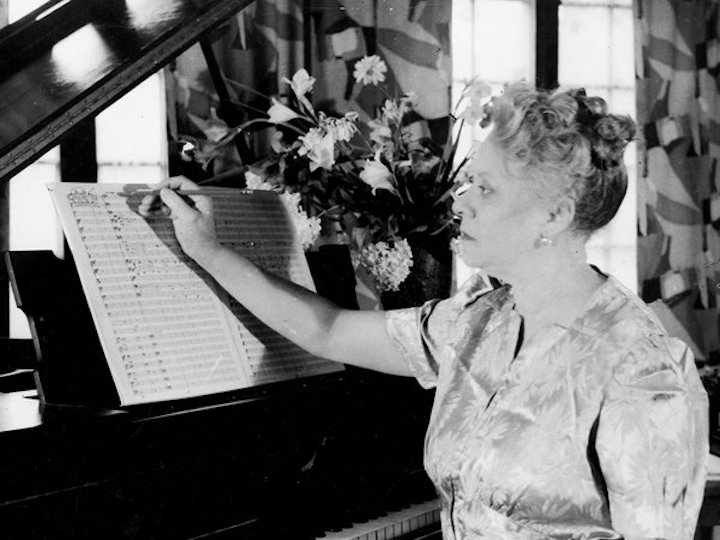






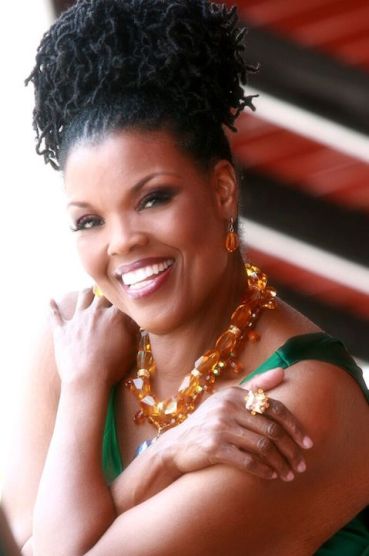





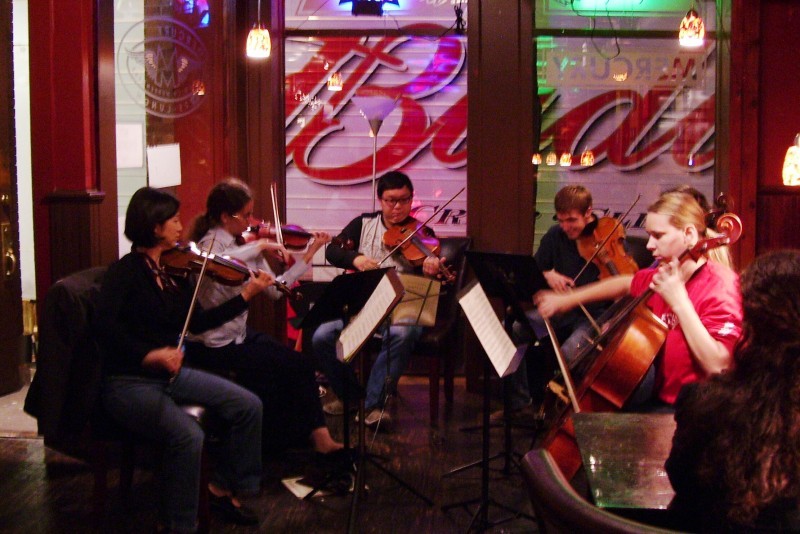

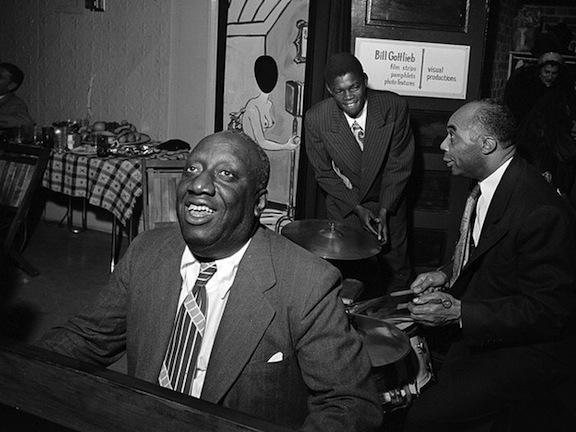
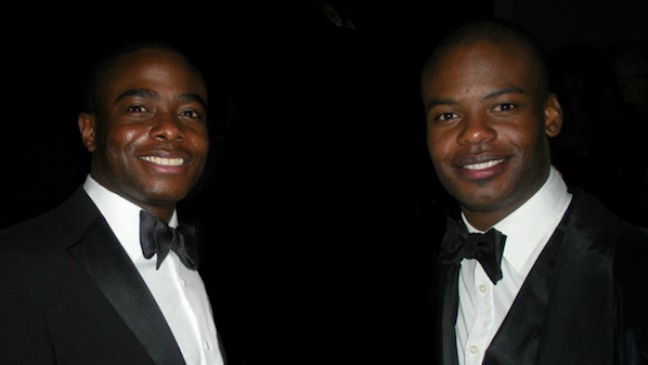
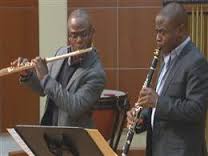
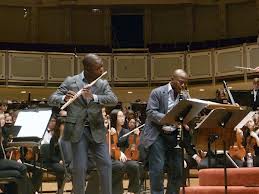
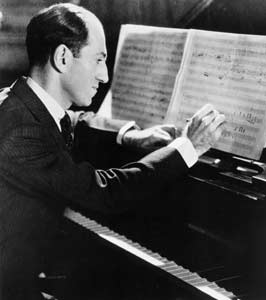
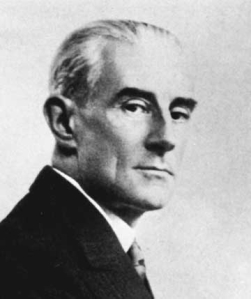
New York Times critics choose 10 online classical music concerts to stream in February, starting this Thursday
1 Comment
PLEASE HELP THE EAR. IF YOU LIKE A CERTAIN BLOG POST, SPREAD THE WORD. FORWARD A LINK TO IT OR, SHARE IT or TAG IT (not just “Like” it) ON FACEBOOK. Performers can use the extra exposure to draw potential audience members to an event. And you might even attract new readers and subscribers to the blog.
By Jacob Stockinger
As they have done for previous months during the coronavirus pandemic, the classical music critics for The New York Times have named their top 10 choices of online concerts to stream in February, which is also Black History Month, starting this Thursday, Feb. 4.
Also predictably, they focus on new music – including a world premiere — new conductors and new composers, although “new” doesn’t necessarily mean young in this context.
For example, the conductor Fabio Luisi (below) is well known to fans of Richard Wagner and the Metropolitan Opera. But he is new to the degree that just last season he became the new conductor of Dallas Symphony Orchestra and its digital concert series.
Similarly, the Finnish composer Magnus Lindberg (below top, in a photo by Saara Vuorjoki) and the American composer Caroline Shaw (below bottom, in a photo by Kait Moreno), who has won a Pulitzer Prize, have both developed reputations for reliable originality.
But chances are good that you have not yet heard of the young avant-garde cellist Mariel Roberts (below top) or the conductor Jonathon Heyward (below bottom).
Nor, The Ear suspects, have you probably heard the names and music of composers Angélica Negrón (below top), who uses found sounds and Tyshawn Sorey (below bottom). (You can sample Negrón’s unusual music in the YouTube video at the bottom.)
Of course, you will also find offerings by well-known figures such as the Berlin Philharmonic and its Kurt Weill festival; conductor Alan Gilbert; pianists Daniil Trifonov and Steven Osborne; violinist Leonidas Kavakos; and the JACK Quartet.
Tried-and-true composers are also featured, including music by Beethoven, Schnittke, Weber, Ravel and Prokofiev. But where are Bach, Vivaldi, Telemann and Handel? No one seems to like Baroque music.
Here is a link to the events with links and descriptions. All times are Eastern: https://www.nytimes.com/2021/01/28/arts/music/classical-music-streaming.html
Do you have other virtual and online concerts to suggest? Please leave details in the Comment sections.
Share this:
Tags: #African-AmericanComposer, #AlanGilbert, #AlfredSchnittke, #AmericanComposer, #AngelicaNegron, #AnthonyTommasini, #AntonioVivaldi, #BaroqueMusic, #BavarianStateOpera, #BerlinGermany, #BerlinPhilharmonic, #BertoltBrecht, #BlackComposer, #BlackHistory, #BlackHistoryMonth, #BlogPost, #BlogPosting, #CarlMariavonWeber, #CarolineShaw, #ChamberMusic, #ClassicalSymphony, #ConcertSeries, #ContemporaryMusic, #CoronavirusPandemic, #CountertenorSinger, #COVID-19, #DallasSymphonyOrchestra, #DallasTexas, #DaniilTrifonov, #DetroitMichigan, #DetroitSymphony, #DetroitSymphonyOrchestra, #EasternTime, #FabioLuisi, #FacebookPost, #FacebookPosting, #FranzJosephHaydn, #GeorgeFridericHandel, #GeorgPhilippTelemann, #HamburgGermany, #HannahKendall, #HelmutLachenmann, #JACKQuartet, #JacobStockinger, #JohannSebastianBach, #JohnHoliday, #JohnStorgards, #JonathonHeyward, #JoshuaBarone, #KurtWeill, #LatinoComposers, #LeonidasKavakos, #LivingComposer, #LudwigVanBeethoven, #MagnusLindberg, #MarielRoberts, #MauriceRavel, #MetropolitanOpera, #ModernMusic, #MotherGoose, #MotherGooseSuite, #MunichGermany, #MusicCritic, #NDRElbphilharmonieOrchestra, #NewMusic, #NewYorkTimes, #OnlineConcert, #OnlineFestival, #OperaMusic, #OrchestralMusic, #PercussionEnsemble, #PercussionMusic, #PianoConcerto, #PuertoRico, #PulitzerPrize, #RichardWagner, #RiseandFalloftheCotyofMahagonny, #SeattleSymphony, #SergeiProkofiev, #SethColterWalls, #SoPercussion, #SteveOsborn, #StringQuartet, #TheEar, #TheMet, #TheThreeopennyOpera, #TheVoice, #TVShow, #TyshawnSorey, #ViolinConcerto, #VirtualConcert, #VirtualFestival, #VocalMusic, #YouTubevideo, #ZacharyWoolfe, abolitionist, African American, African-Amercian, Alan Gilbert, Alfred Schnittke, America, American, Angelica Negron, Anthony Tommasini, Antonio Vivaldi, Arts, audience, avant-garde, Bach, Barone, Baroque, Baroque music, Bavaria, Bavarian State Opera, Beethoven, Berlin, Berlin Philharmonic, Bertolt Brecht, black, black composer, Black history, Black History Month, blog, Brecht, Carl Maria von Weber, Caroline Shaw, cellist, Cello, Chamber music, chance, Classical music, Classical Symphony, colorful, comment, composer, computer, Concert, concert series, concerto, conductor, contemporary, contemporary music, context, coronavirus, coronavirus pandemic, countertenor, critics, Dallas, Dallas Symphony Orchestra, Daniil Trifonov, dergee, description, details, Detroit, Detroit Symphony, Detroit Symphony Orchestra, digital, Eastern time, enchanting, Europe, European, event, Fabio Luisi, Facebook, Facebook post, Facebook posting, February, female, festival, Finland, Finnish, forward, Franz Joseph Haydn, Georg Philipp Telemann, George Frideric Handel, German, Germany, Gilbert, Hamburg, Handel, Hannah Kendall, Haydn, Helmut Lachenmann, Heyward, Hispanic, History, JACK Quartet, Jacob Stockinger, Johann Sebastian Bach, John Holiday, John Storgards, Jonathon Heyward, Joshua Barone, Kavakos, Kendall, Kurt Weill, Latina, Latino, Leonidas Kavakos, like, Lindberg, link, living composers, Ludwig van Beethoven, Luisi, Magnus Lindberg, Mariel Roberts, Maurice Ravel, Metropolitan Opera, modern music, Mother Goose, Mother Goose Suite, Munich, Music, music critic, NDR Elbphilharmonie Orchestra, Negrón, new, New Music, New York Times, online, opera, Orchestra, orchestral music, original, originality, Osborn, Overture, percussion, Percussion Ensemble, performers, Pianist, Piano, Piano concerto, post, posting, Prokofiev, Puerto Rico, Pulitzer Prize, Ravel, reliable, reputation, Richard Wager, Rise and Fall of the City of Mahagonny, Roberts, Romantic, Schnittke, Season, Seattle, Seattle Symphony, section, Sergei Prokofiev, series, Seth Colter Walls, share, Shaw, singer, Singing, So percussion, Sorey, Steven Osborn, Storgards, stream, String quartet, suffragist, suggestion, Suite, symphony, tag, Telemann, Texas, The Ear, the Met, The Threepenny Opera, The Voice, time, Tommasini, Trifonov, TV, TV show, Tyshawn Sorey, United States, Violin, Violin concerto, violinist, virtual, Vivaldi, vocal music, Wagner, Weber, Weill, win, women, Woolfe, young, YouTube, Zachary Woolfe